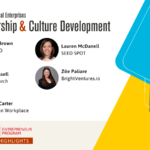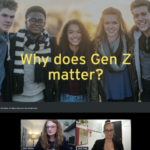Wednesday’s session, “Government Matters,” which was moderated by Michael D. Smith of the Social Innovation Fund, formed the staging grounds for a lively dialogue between the audience (mostly non-profit directors and fund managers) and Shrupti Shah, Ross D. Rocketto, and Rob Terrin of Deloitte’s GovLab. (GovLab is Deloitte’s Federal Government consulting arm, which provides research on ideas that have the capacity to make government more efficient while increasing public value.) The issue of the hour: “What can government do to grow the impact economy?” But instead of offering prescriptive recommendations, the panel turned the question on the audience to answer. But not before Ms. Shah revealed the three elements needed for Government-supported impact to happen:
1: Supported by good rules—solutions need to represent something that the government is legally allowed to invest in / the extent that rules support impact.
2: Capabilities—The resources and skills and assets held by government to support impact e.g. data or land (e.g the Presidio being handed over to organizations to form green non-profit centers.)
3: Priorities—Proposed solutions need to be practical and urgent. “In any ecosystem, there are always more things that you should be doing that you can do at any one time,” said Ms. Shah.
While public sector budgets are tighter than ever and needs are paradoxically greater than ever, Mr. Smith outlined where governments can still excel in growing impact: Government as a Convener—Bringing more and varied players together than any single firm could ever.
Government as an Activist for the Solution Economy—Mr. Smith cited the JOBS Act, which opened up Crowdfunding and new lifelines of capital to social ventures entrepreneurs.
And lastly, Government as a platform builder—e.g. the Start-up America initiative which aims to create local innovation centers analogous to Silicon Valley in cities such as Detroit and Raleigh.
Perhaps the biggest takeaway was Governments new 80/20 rule: Government can no longer afford to do the heavy lifting. It can do about 20 percent of the work by framing the work but its up to the rest of the impact ecosystem to power the other 80 percent and achieve the results. “Government does not have a monopoly on buying good,” said Ms. Shah. That’s where all of us come in.
Special SOCAP13 Volunteer Post by @Nick_Hiebert




